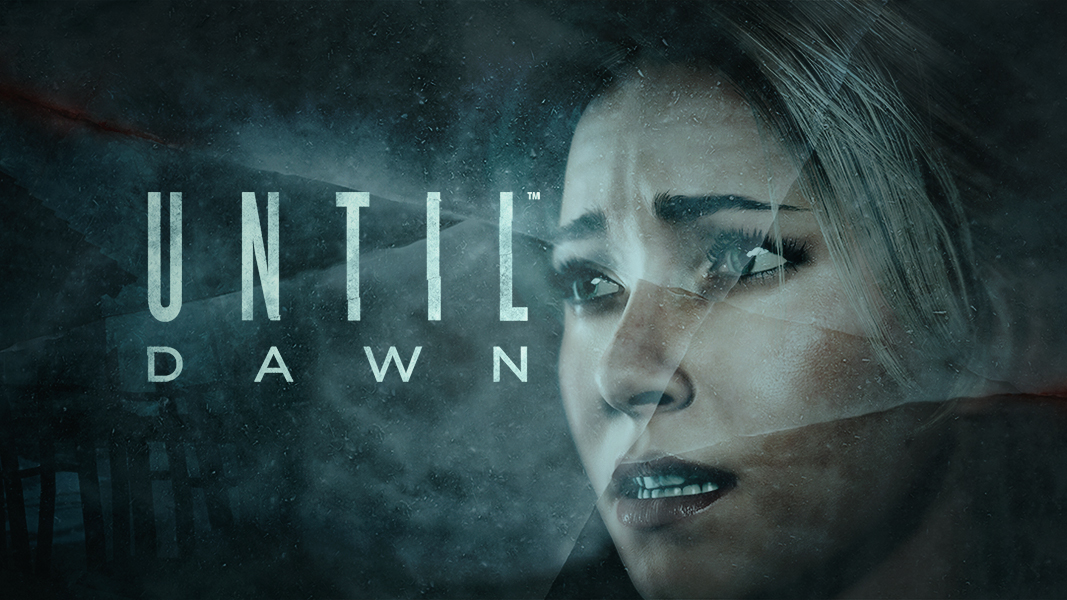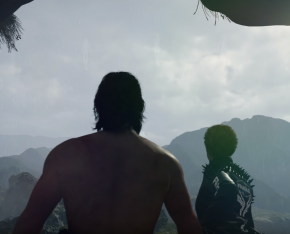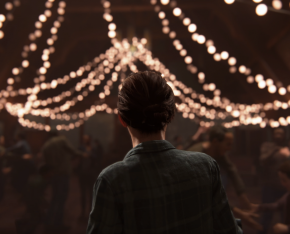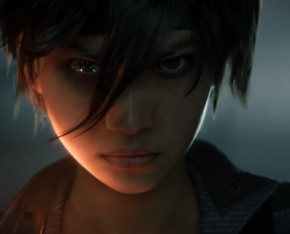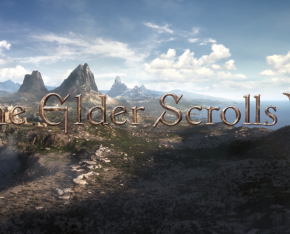By Bryan Smith on August 29, 2015 at 1:33pm
Decision-making games are usually a hit-or-miss genre for people. You either have games that are driven by your decisions (such as “Heavy Rain”) or more geared with story telling in mind (such as the TellTale Games series of games). People, for the most part, want the former because the game tells the players that their decisions will scope the story. I say that because the more story driven games tend to make player decisions worthless in the long run, such as “The Walking Dead Season 2” and “Beyond: Two Souls.” So with “Until Dawn” came back into the spotlight after disappearing from the PlayStation 3 era, people were skeptical. Would “Until Dawn” fall victim of being vaporware and be a lackluster title that doesn’t take decisions to heart or would it be the next “Heavy Rain?”
Safe to say, “Until Dawn” is a fantastic game to take decision-making to a new level. I also don’t think it’ll be any kind of spoiler to mention that any character in this game can die. There are also options that the main characters after the prologue can all live as well. With the decision factor put into place, we got ourselves one special treat.
Your Choices, Your Actions, Your Call
“Heavy Rain” is one of my favorite games of all time because of what innovative gameplay and story telling it brought to the playing field. Decisions I made (slightly after the actual plot kicked in anyways) affected the story.
SPOILERS FOR “HEAVY RAIN:" Ethan Mars, Madison Paige, Norman Jayden, Scott Shelby, Shaun Mars, and Lauren Winter can all die in the game, but if they die is based on your actions (though at least one of those characters has to live at the end).
Prior to “Until Dawn,” there really hasn’t been any game that has hit the same level of decision-making in a game since. TellTale Games and their series have certainly come close, but a lot of their decisions are more… shall we say, irrelevant even at the end where certain characters die regardless of past decisions. It wasn’t so much I wanted to see these characters alive and these dead, but more so the developers and writers wanted these characters to stay alive no matter what and have a few handpicked ones that we can choice to kill or not.
That isn’t the case for “Until Dawn.” This horror game with decision-making will test you on your actions. So many decisions you choice will impact the story later on, which is surprising for a deceptively simple setup of teens at a cabin with a murderer or two out and about. For the most part (save for a few… quirky antics in buttons and commands), “Until Dawn” plays identical like “Heavy Rain” with better controls for movement. This will lead to rather small events making bigger consequences later on. You shoot a squirrel? Nature won’t take that lightly and will impact something later. Fear the deer, man. You choose a friend in a deadly situation over another? The other might remember that and won’t save you against death if the situation calls for it. The Butterfly Effect System is intricate and decisions will map out who gets to live and who dies.
Moods also construct the story. Dependent on actions, a character will react accordingly to another event in the future. Say that one of the characters, like Mike, does something heroic or brave. That boosts a stat that’ll affect his performance later (which I believe correlates to how the button commands and how fast they come, though I can't completely confirm that). Also take, for example, a really damaging event that affects a person’s mood that isn’t death related. Matt can be shown something (shall not spoil) by another character. If he doesn’t see it, he isn't affected and behaves normally. If he does see it, however, he’s certainly taking a hit in personality and mood. Relationships between characters are important, and what you choose to do will make another character react accordingly.
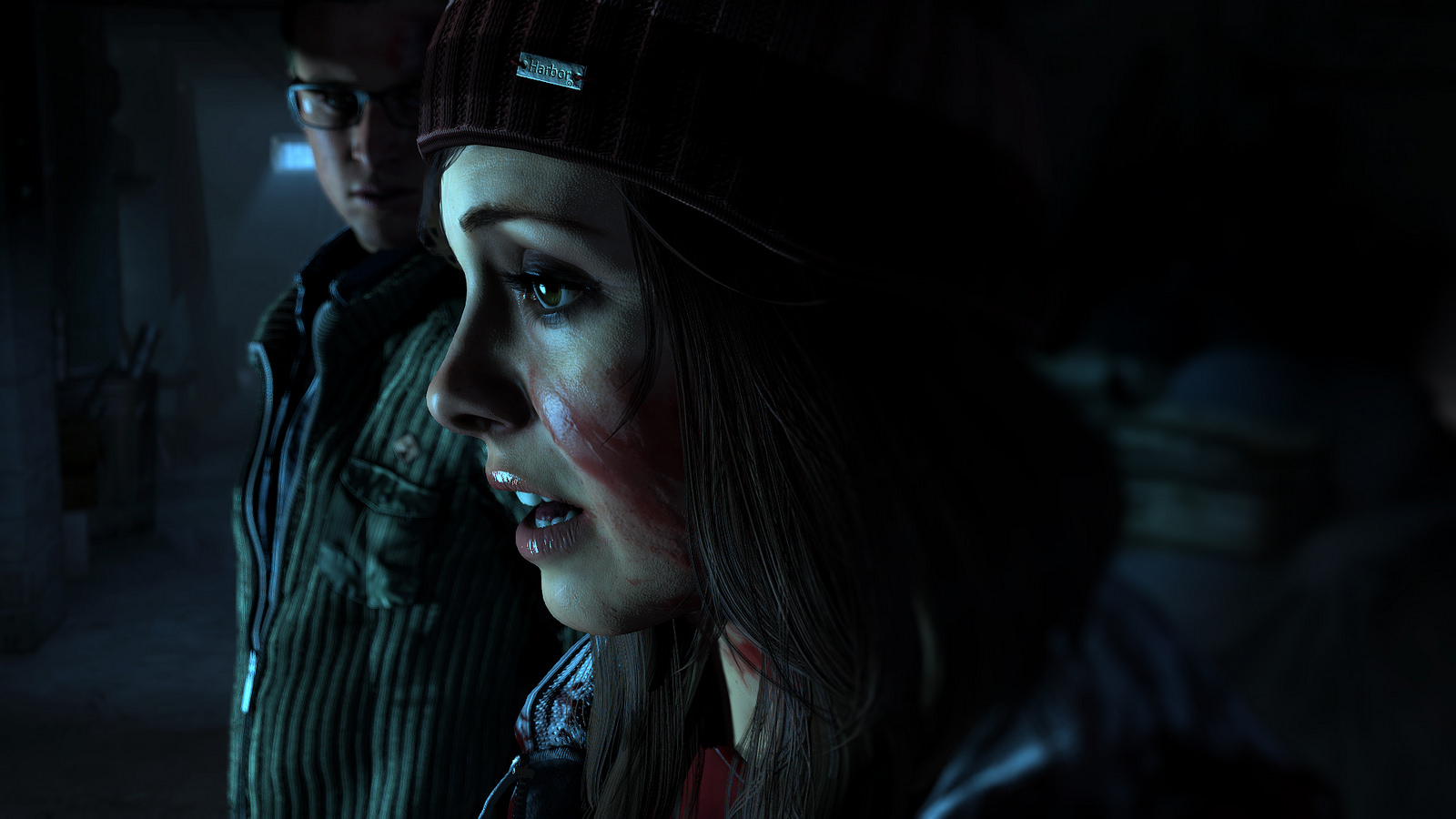
Presentation Is So Good
My goodness- this is one of the best looking games I’ve seen yet for this generation. Sam, voiced by Hayden Panettiere, is so realistic yet doesn’t bleed over into the uncanny valley. Most of the characters look and move great, save for a few of the guys with their… unnatural eyes. Josh gives me the creeps with those uncanny looking eyes. The voice work is phenomenal that picks up the panic, despair, peril, relief, and more coming out of the characters.
The looks certainly deliver, and the promise of actions mattering also knocks the proverbial ball out of the park. As stated before, even tiny decisions like being kind to nature impact a character and his or her mood and performance. We got ourselves a brutal and unpleasant world these eight playable characters (not including Beth) are in, and the game certainly doesn’t pull its punches. You mess it up; “Until Dawn” isn’t shy on telling you so by cutting off a character’s head off.
Decision-Making Could Be a Bit Cleaned Up
It’s time for the blunt reviewer to be blunt! All right folks - what does this reviewer has to say about certain decision-making commands in this game? They need some fine-tuning. As for the motion controls, well, motion controls for decision-making can go to hell! I may have used the traditional button control scheme for the game, which makes deciding a lot more comfortable, but motion controls are still there for holding still. There’d be times that one simple, little mistake, whether it’s the player, game, or an outside force’s fault can be fatal for anyone. The first playthrough doesn’t allow people to have multiple saves or checkpoints, which means you’ll have to be very precise with what you do and how you respond to the game. The only way to "try again" is to restart the whole game.
While this system of finality is to make decisions pack more of a punch and to stop those who recklessly run through these types of games from restarting from a checkpoint, it seems the system could also alienate certain people. Not everyone will know that beating the game once will let people select chapters to change things in. If a timid person gets slaughtered (in decisions) by a tiny mistake that could have been the game’s fault of not recognizing a command (see motion control), he/she probably doesn’t want to continue on seeing that there isn’t a way to correct that mistake at the moment. Most people going into “Until Dawn” knowing that this game has decision-making will probably appreciate how final choices are, seeing that is how life is at times. However, that doesn’t negate the feeling that a video game being as final as this appears to be harsher. How would you feel when the one character you don’t want dead accidentally die for a simple mistake and have the game say, “Sorry, you’re boned for the rest of the game. Either retry the whole thing again from the start or stick with your story you now hate.”
It’s rather off-putting to play a game where learning from mistakes isn’t really a thing.
Small Details (Like Predictability/Originality) Pull a Bit at the Thrills
Boy, things become uncomfortably predictable in this game, and that can come as painfully soon as getting to the startup screen for those who have a sharp eye. I decided to take a look at what the collectibles are and I saw totems, which told me that there’d be Native American roots in the story. If you’re very knowledgeable of Native American lore, you might be able to piece things together rather quickly. To avoid spoilers, just play the game. It shouldn’t be too hard to find out what I’m talking about. Also, certain pieces of dialogue might give away twists. Again, that’s up to those who can spot it in the first place.
This is is a very minor spoiler but trust me, this happens in the prologue and probably in a trailer and synopsis for the game. Beth’s death just seems a waste of a potentially good character. Whereas Hannah, Beth’s sister, is the stereotypical "controlled by love" type of character, Beth seemed more levelheaded (as far as running into a snow storm at night by herself goes, anyways) than most of the playable characters - aside from Sam. I wanted to play more as Beth since we got to play as her, but plot demands she be dead. Going back to the predictability of the game, I somewhat wish that the writers took a different route. I rather just have a blunt horror-slasher story that gave me choices rather than try to subvert certain elements. This, however, is a small nitpick. Sam is still a delight to see make it out OK (should you keep her alive anyways) and the other characters have the strengths and weaknesses too, so Beth’s character isn’t a huge loss (not in the sense of her being dead- which is still tragic).
Speaking of writing, though, I think the writers should have studied up on other horror movies before diving into their story. Now I’m not saying that everything new that comes out has to be absolutely original or it’s ripping off something old. A lot of good things like Pixar’s “Inside Out” piggybacked off some of “Osmosis Jones’s” ideas, like the dreams being a theater thing and what have you. It’s execution and all, and “Until Dawn” is still excellent for that. However, considering that cheesy horror movie fans would get a kick out of this game, they’re going to pick up on a lot of eerie similarities to a movie titled “Shredder.”
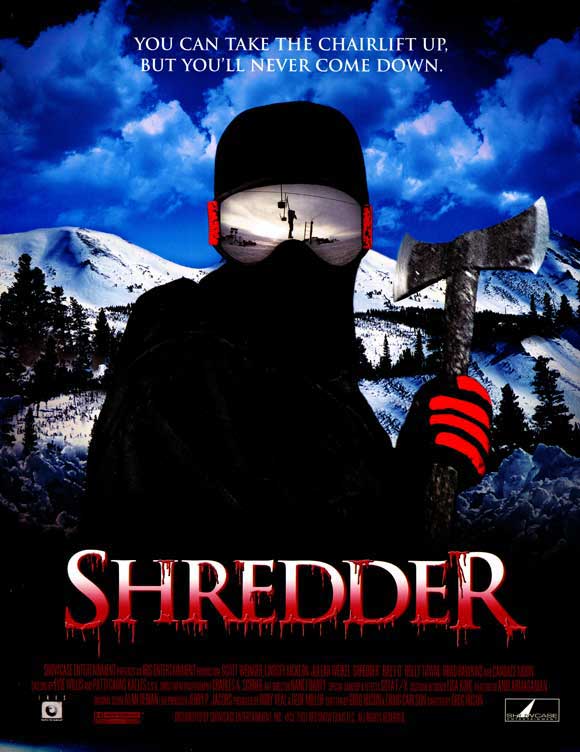
“Shredder” is a 2003 movie where a bunch of young college students (teens basically) are murdered on a snowy mountain by a mysterious figure linked to a death a girl… which shockingly matches up a lot with “Until Dawn.” Heck, both share two actors that have had voice roles in “Kingdom Hearts” games, that being Hayden Panettiere as Kairi and Scot Weinger as Aladdin. While this little nitpick doesn’t hurt the game too much, or barely at all since “Until Dawn” is a better product of entertainment overall, it’s hard not to notice how similar these two things are.
My Choices Finally Felt Validated for a "Choose Your Options" Game
If it feels like I’m skimping out on the juicy details for this review, it’s because it’d be hard not to spoil the story itself, which... may seem contradictory because “Until Dawn” is basically a build-your-own story where you choose who lives and who dies. However, it’s those certain decisions that craft that path, and knowing those decisions might diminish the fun. As the game says, a simple butterfly flapping its wings can create a hurricane in the future.
“Until Dawn” is one of the better, if not best, games centered on well-crafted actions that will mold the story’s path. I loved “Heavy Rain,” yet this game steps up the themes of consequences more than any game before. The characters are a blast in this luscious world and I tried my best to keep them alive… though that doesn’t mean they did. I think this is just another step towards a truly big, action game that has you in full control (like Nathan Drake in an “Uncharted” game) but with your actions for the smaller things impact the larger story.
Does “Until Dawn” have problems? Of course, which to be fair, “Heavy Rain” did as well. Controls, while more refined with traditional button schemes, might still lead to user-errors that can’t be fixed in the first playthrough. The predictability and originality also could be called into question, but not outright awful. Overall, I greatly enjoyed “Until Dawn.”
It’s sad, though, that “Until Dawn” can’t get a technical sequel. Just thinking of how much programming and writing that would have to go into that sends shivers down my spine. This is the same position that “Heavy Rain” falls under. Though I do propose a different scenario system like that in “Resident Evil Outbreak 1 & 2.” Just have the characters in a different setting and bam! We got ourselves a series of games to explore these characters. Shame that games with multiple endings don’t think of this possibility though…
